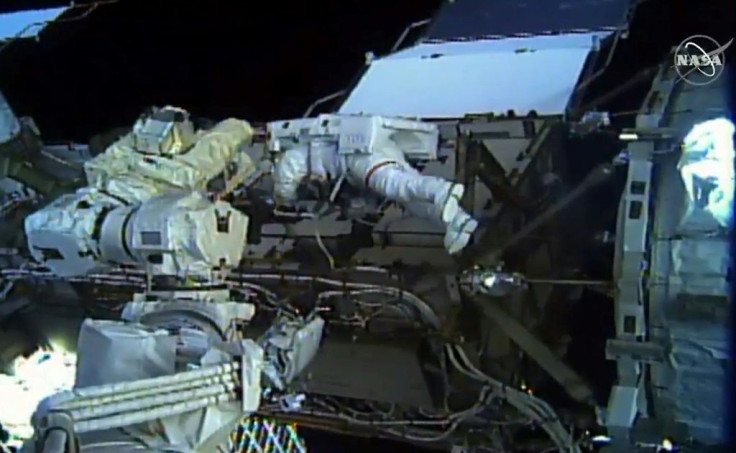How NASA Astronaut's Record-Setting ISS Stay Will Help Future Missions

KEY POINTS
- NASA astronaut Christina Koch will have stayed in space for 328 days when she returns
- She has set the record for longest single spaceflight by any woman
- Her extended stay will provide vital information for longer spaceflights in the future
- Koch also helped investigate the effects of spaceflight on the human body
When NASA astronaut Christina Koch returns to Earth on Feb. 6, she will have lived at the International Space Station (ISS) for 328 days, setting the record for the longest single spaceflight by any woman. Apart from setting impressive records for humanity and for women, Koch’s extended stay at the ISS is also vital for the future plans to go back to the Moon and eventually to Mars.
Extended Mission
It was only one month after she arrived at the ISS when Koch found out that her mission would have her stay in space for almost a year. By having her stay in space for that long, scientists will have an opportunity to observe the effects of long-term spaceflight on women. This data will complement the data provided by Scott Kelly, who set the record for longest single spaceflight by a U.S. astronaut between 2015 and 2016 by staying aboard the ISS for 340 days, and Peggy Whitson, who has stayed at the ISS for a total of 665 days over three missions.
Taken together, the data provided by the astronauts’ extended stay in space will help NASA's Human Research Program to prepare for the plans to go to the Moon and Mars, especially since a significant part of the plan is to bring the first woman to the Moon. With the data provided by the astronauts, researchers can better understand the human body's adaptation to long-term stays in space and, perhaps develop countermeasures to help maintain astronauts’ health.
Andrew Morgan, who is currently on an extended 10-month stay, will also provide valuable data about astronaut health and performance.
“These opportunities also have demonstrated there is a significant degree of variability in human response to spaceflight, as well as the importance of determining the acceptable degree of change for both men and women,” NASA notes.
Scientific Experiments
During her stay at the ISS, Koch conducted over 200 scientific investigations and even participated as a volunteer experiment subject in some. This includes research studies on how the human body adjusts to isolation, radiation, weightlessness and long-duration spaceflight.
For instance, Koch participated in the Vertebral Strength investigation, which would help shed light on the extent of spaceflight-related bone and muscle degradation of the spine. This could help in the development of possible countermeasures such as medicines or preventative exercise.
Another example is the Kidney Cells investigation, which aimed to find innovative treatments for kidney stones, toxic chemical exposures and osteoporosis. This particular experiment examines how microgravity as well as other space travel-related factors such as altered diets may affect kidney health. Apart from contributing information about astronauts’ kidney health, this investigation also aims to contribute better treatments for kidney conditions on Earth.
Koch's return home is scheduled for Thursday. She will be coming home with fellow record-setting ISS astronauts Luca Parmitano and Alexander Skvortsov.
© Copyright IBTimes 2025. All rights reserved.






















